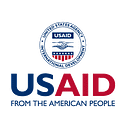CATALYZE and USAID Partners Highlight How Supporting Non-State Education Sectors Can Help Advance Education Objectives
The CATALYZE EduFinance and CATALYZE Early Childhood Care and Education (ECCE) Together for Childhood Evidence (T4ECE) activities, and the CATALYZE non-state education community of practice, the Education Finance Network (EFN), each led panels at USAID Education Bureau’s flagship event, the 2024 Global Education Conference (GEC2024). The conference convened USAID Missions, USAID/Washington education leadership and management teams, and implementing partners to share impacts and learnings across USAID’s education portfolio.
CATALYZE panelists included existing USAID Mission partners from both EduFinance and ECCE T4ECE activities in Africa (Democratic Republic of the Congo, Ethiopia, Liberia, Malawi, Rwanda, South Africa, Tanzania, and Zambia), as well as local and global leaders and implementers in non-state blended finance through the EFN panel. CATALYZE further participated in a USAID-organized panel that included the World Bank and the Brookings Institute on promising practices in education finance.
USAID Global Education Conference 2024: Key Themes and Takeaways
GEC24 marked a critical touchpoint for CATALYZE Education and USAID Missions as the activities continue to actively share learning results, impact data, and research outcomes. USAID Missions not currently partnered with CATALYZE heard directly from Missions that are implementing EduFinance and ECCE activities on how engagement with non-state education and private sectors across Africa are helping advance their education strategies.
The following are key takeaways and themes from these interactions:
— The conversations around non-state engagement have shifted from Should USAID work in the non-state education sector? to How can USAID best support this space?
— With a quarter of students in low- and middle-income countries attending non-state schools, a bulk of which are serving low-income populations, it is critical for USAID and others to support these schools to complement its efforts in improving educational outcomes in the public sector.
— USAID can continue to play an influential role in supporting improved access, quality, and learning in the non-state sector by enhancing educational quality support to these schools, facilitating increased access to finance, and stimulating innovative partnerships and models.
— USAID’s funding can catalyze private sources of financing, technical expertise, and capacity building that amplify the impact of each dollar it invests in the education space by crowding in additional resources and actors.
— There is potential to expand CATALYZE Education support in fragile and conflict-affected areas — where non-state schools provide the majority of educational opportunities.
— Despite limited funding, ECCE is a high priority area that supports efficiency and effectiveness of primary education systems. Further, emphasis on Early Childhood Development (ECD) centers — where parents send their children to be safe and learn — is an important intervention point, and ensuring safety in these settings is a tangible step toward protecting children from the detrimental effects of lead exposure.
— Policy and regulatory reform will be critical to ensuring quality and coherence of education systems across actors.
— Innovative, results-based approaches being tested through CATALZYE Education interventions are contributing to building an evidence base to enhance future initiatives.
— It will be essential to continue making the case for non-state blended finance approaches through dedicated evidence dissemination and stakeholder engagement strategies.
What’s next?
CATALYZE Education and the EFN will integrate learnings from GEC24 as it refines existing implementation activities, shapes potential new opportunities to expand support to USAID Missions and Bureaus, and packages and disseminates critical evidence in the non-state education blended finance space.
Learn more
USAID Education: GEC2024 site | Education finance / Non-state engagement approach
CATALYZE Education Portfolio: Overview | Blog on participation in CIES 2024
CATALYZE EduFinance: Backgrounder | Results infograph | Factsheets
CATALYZE ECCE T4ECE: Backgrounder | Factsheets | CATALYZE ECCE Family of Investments
Education Finance Network: Overview
